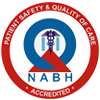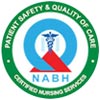
Signs You Need to See a Doctor for Kidney Pain
June 04, 2024
Have you ever experienced a sharp or persistent pain in your lower back or side? This could be a sign of kidney pain, a serious issue that requires immediate attention. Understanding when to see a doctor for kidney pain can make a significant difference in your overall health.
Kidney pain is often mistaken for common back pain. However, distinguishing between the two is crucial as kidney pain often indicates underlying health issues. It's essential to recognize the symptoms that necessitate a visit to the doctor.
10 Signs You Need to See a Doctor for Kidney Pain
Recognizing the signs of kidney pain that warrant a doctor's visit is essential for early diagnosis and treatment. Here are key indicators that you should seek medical attention for kidney pain.
1. Severe Pain
Experiencing severe pain in your side, back, or abdomen could indicate a serious kidney issue. This pain might come in waves and could be accompanied by nausea or vomiting. Severe kidney pain can be a sign of kidney stones or an infection that needs prompt medical intervention.
2. Pain with Fever
If you have pain along with a fever, body aches, and fatigue, it might be a sign of a kidney infection. Kidney infections require immediate medical attention to prevent further complications and possible kidney damage.
3. Recent Urinary Tract Infection
A recent urinary tract infection (UTI) that has not been treated adequately can escalate into a kidney infection, causing significant pain. If you experience persistent pain after a UTI, it's crucial to consult a doctor to prevent the infection from spreading.
4. Painful Urination
Experiencing pain while urinating, along with kidney pain, could indicate a UTI or a kidney infection. These symptoms should be addressed by a healthcare professional to prevent worsening of the condition and to avoid potential kidney damage.
5. Blood in Urine
Blood in your urine is a serious symptom that should not be ignored. It could be a sign of kidney stones or a more severe condition like kidney cancer. Immediate medical evaluation is essential to determine the cause and appropriate treatment.
6. Persistent Upset Stomach or Vomiting
Persistent nausea and vomiting along with kidney pain may indicate a severe kidney condition. These symptoms require immediate medical attention to prevent further complications and to ensure proper kidney function.
7. Dehydration Symptoms
Severe dehydration can cause kidney pain. If you have been dehydrated due to excessive sweating, vomiting, or diarrhea, and experience kidney pain, consult a doctor. Proper hydration is essential for kidney health, and dehydration can lead to serious kidney issues.
8. Swelling in Extremities
Swelling in your legs, ankles, or feet, along with kidney pain, can be a sign of kidney dysfunction. When the kidneys are not filtering waste effectively, it can lead to fluid buildup in the body. Medical evaluation is necessary to address this condition.
9. Unexplained Weight Loss
Unexplained weight loss accompanied by persistent kidney pain can be a symptom of serious conditions like kidney cancer or chronic kidney disease. Early detection and treatment are crucial to managing these conditions effectively.
10. Pain After Injury
If you experience kidney pain following an injury or accident, it could indicate kidney trauma. This type of pain should be evaluated by a doctor to assess the extent of the damage and to receive appropriate treatment.
Conclusion
Recognizing these signs and symptoms can help you understand when to see a doctor for kidney pain. Early diagnosis and treatment are vital to prevent severe kidney damage and other health complications. Timely medical intervention can help manage the underlying causes and improve your overall health.
Remember, your kidneys play a crucial role in your body's overall function. Ignoring kidney pain can lead to serious health issues, including kidney failure. If you experience any of the mentioned symptoms, it's important to consult a healthcare professional immediately.
Consult a Specialist for Kidney Pain
Early diagnosis is crucial. If you notice any of these symptoms, it is important to seek timely medical advice to prevent further complications. Early intervention can significantly improve outcomes and help maintain kidney health.
Don't wait—book your nephrology appointment with PSG Hospitals today to ensure your kidneys are healthy and functioning properly.
FAQs
1. What are common causes of kidney pain?
The common causes of kidney pain are:
- Kidney stones: Waste builds up and forms clumps in your kidneys.
- Urinary tract infections (UTIs): Bacteria in the urinary tract causing pain.
- Dehydration: Lack of water leading to kidney pain.
- Kidney infections: Bacteria spreading from the urinary tract.
- Kidney injury: Trauma from accidents or sports.
- Kidney cancer: Pain as the cancer progresses.
- Polycystic kidney disease: Genetic condition causing cysts in kidneys.
2. When should I be concerned about kidney pain?
You should be concerned about kidney pain if it is higher in your back near the ribs, causes waves of severe pain, is accompanied by fever, or is stronger on one side. Seek medical attention if the pain is severe and sudden.
3. What tests might a doctor perform for kidney pain?
Doctors might perform the following tests for kidney pain:
- Blood tests: Check for antibodies or proteins.
- eGFR test: Measure how well kidneys are working.
- Serum creatinine test: Determine creatinine levels.
- Blood urea nitrogen (BUN) test: Measure urea nitrogen levels.
- Cystatin C test: Check eGFR.
- Urine tests: Detect signs of kidney disease.
- Imaging tests: Ultrasound, CT scan, MRI.
- Kidney biopsy: Determine the cause and severity of kidney issues.
4. What kidney pain symptoms require immediate medical attention?
The kidney pain symptoms requiring immediate medical attention are:
- Fever, body aches, fatigue
- Recent UTI
- Pain when urinating
- Blood in urine
- Upset stomach or vomiting
5. What potential health issues can arise from untreated kidney pain?
Potential health issues from untreated kidney pain include:
- Gout: Swelling and pain in joints.
- Anemia: Common in chronic kidney disease.
- High phosphorus: Harmful if levels are too high.
- Heart disease: Caused by kidney disease.
- High potassium: Risk due to poor kidney function.
- Pruritus: Itchy skin.
- Metabolic acidosis: Acid buildup.
- Secondary hyperparathyroidism: Imbalance of calcium, vitamin D, and phosphorus.
6. How does hydration impact kidney health?
Proper hydration is essential for kidney health because it helps to flush out toxins and prevents the formation of kidney stones. Hydration also supports kidney function by maintaining electrolyte balance and regulating blood pressure.
7. What foods should be avoided to maintain healthy kidneys?
Foods to avoid to maintain healthy kidneys include:
- Dark-colored soda
- Avocados
- Canned foods
- Whole wheat bread
- Brown rice
- Bananas
- Dairy
- Oranges and orange juice
- Processed meats
8. What are the risks of treating kidney pain with non-prescription medications?
Treating kidney pain with non-prescription medications can be risky because medications might build up in the body if kidneys are not functioning well. This can cause unwanted side effects, so always consult a doctor before taking any medication.
9. What types of physical activity are recommended for someone with kidney issues?
Recommended physical activities for someone with kidney issues include:
- Aerobic exercises: Walking, jogging, swimming, cycling.
- Strength training: Free weights, resistance bands, bodyweight exercises.
- Flexibility exercises: Stretching, yoga, tai chi.
10. How do kidney infections develop and what are their signs?
Kidney infections develop from bacteria or viruses moving from the bladder to the kidneys. Signs of kidney infections include:
- Chills
- Fever
- Pain in back, side, or groin
- Nausea and vomiting
- Cloudy, dark, bloody, or foul-smelling urine
- Frequent, painful urination
Recent Blogs
- Signs You Need to See a Doctor for Kidney Pain
- What Is A Nuclear Radiologist
- GUIDE TO NUCLEAR MEDICINE IMAGING
- Nuclear Medicine In Oncology
- Advancements In Nuclear Medicine Technology
- The Role Of Radiotracers In Nuclear Medicine
- An Introduction To Nuclear Medicine
- Cardiac Catheterization: When Is It Required?
- Types Of Pediatric Cardiology Test
- Tips For Preventing Heart Problems In Kids
- Advances In The Diagnosis Of Congenital Heart Disease In Children
- Signs Of Heart Problems In Children
- What Is A Pediatric Cardiologist?
- Understanding Congenital Heart Defects In Children
- Pediatric Cardiac Surgery: Types And Considerations
2023
- December (6)
- November (8)
- Cardiac Catheterization: When Is It Required?
- Types Of Pediatric Cardiology Test
- Tips For Preventing Heart Problems In Kids
- Advances In The Diagnosis Of Congenital Heart Disease In Children
- Signs Of Heart Problems In Children
- What Is A Pediatric Cardiologist?
- Understanding Congenital Heart Defects In Children
- Pediatric Cardiac Surgery: Types And Considerations
- September (7)
- Lifestyle Changes To Prevent Diabetes
- New Innovative Advances In Diabetes Treatment
- The Link Between Obesity And Diabetes
- Monitoring Blood Sugar At Home
- The Importance Of Regular Diabetes Check-ups
- Understanding Diabetes: Types, Causes, Symptoms & Treatment
- Lower Blood Sugar Naturally: Managing Blood Sugar Through Diet
- August (8)
- What’s The Difference Between A Neurologist And Neurosurgeon?
- Dementia: Causes, Symptoms, Diagnosis And Treatment
- Seizures: Causes, Symptoms, Diagnosis And Treatment
- Epilepsy: Causes, Symptoms, Diagnosis And Treatment
- Is Autism A Neurological Disorder? Causes, Symptoms & Diagnosis
- Pediatric Neurology: Neurological Disorders In Pediatrics
- What Are The Most Common Neurological Disorders?
- Types Of Neurosurgery: Overview, Procedure & Costs
- July (11)
- Types of Cardiac Stents
- Types of nuclear cardiology tests
- What Are the Different Types of Heart Surgery and Their Purposes?
- What is the difference between Cardiologist and Cardiothoracic Surgeon?
- What is the difference between Invasive, Non Invasive and Interventional Cardiology?
- What are the different Cardiology Subspecialties?
- What Are The Do’s And Don’ts For The Embryo Transfer Process?
- 5 Myths Over IVF
- Superfoods That Can Boost Your Chances of IVF Success
- What Is Male Infertility? Treatments For Male Infertility
- Causes of Male and Female Infertility
- April (4)
- March (1)
-

Share with us
Click Here -

Organ Transplantation
Click Here
Copyrights © 2024 PSG Hospitals. All Rights Reserved.








